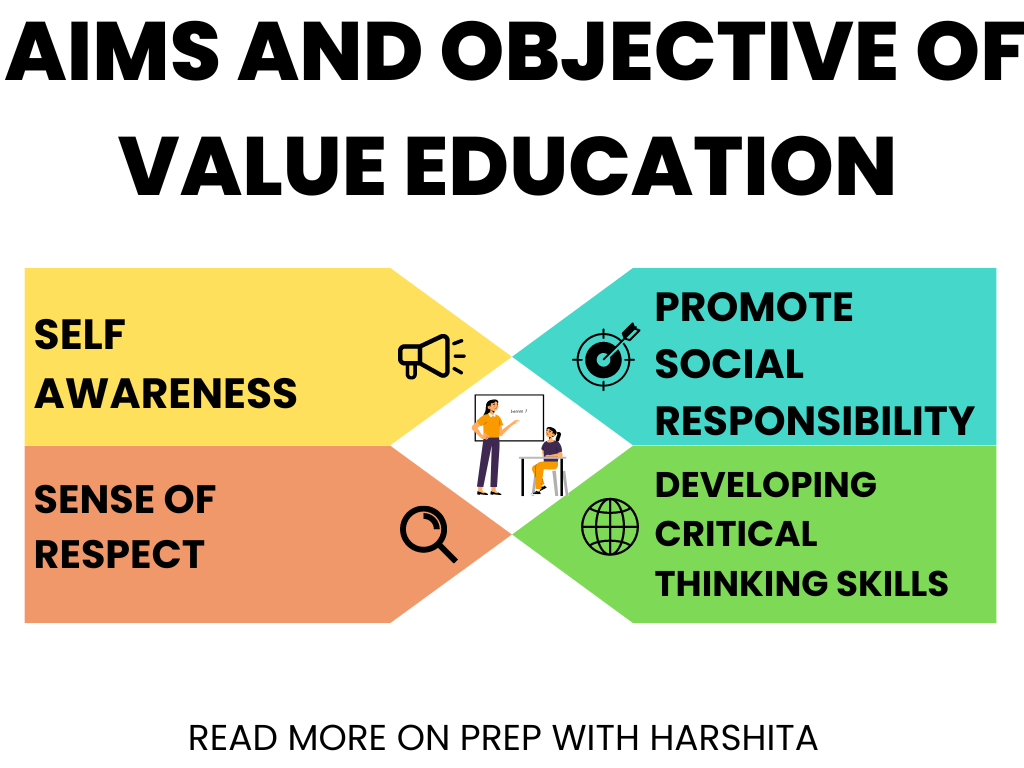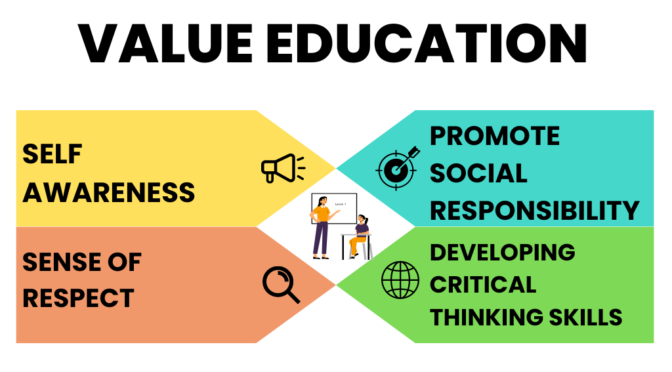Value education refers to the process of imparting ethical, moral, and social values to individuals. The aims and objectives of value education is to develop positive values and character traits in individuals, which can help them lead happy, fulfilling lives and contribute positively to society.
Value Education :
Value education is an important component of education systems around the world because it helps individuals to develop a strong sense of ethics, empathy, and responsibility.
It can take many forms, including classroom instruction, extracurricular activities, and community service projects. Some examples of values that are commonly promoted through value education include honesty, respect, compassion, responsibility, tolerance, and social justice.
Value education aims to promote and instill positive values and character traits in individuals. The ultimate objective of value education is to enable individuals to lead happy, fulfilling lives and contribute positively to society.
Here are some aims and objectives of value education in detail:
- Developing a sense of self-awareness: Value education aims to help individuals develop a strong sense of self-awareness. This means being aware of one’s strengths, weaknesses, emotions, and thoughts. Self-awareness is important because it enables individuals to understand themselves better, which can help them make better choices and decisions.
- Fostering a sense of respect: Value education aims to promote respect for oneself, others, and the environment. Respect is an important value because it helps individuals to treat others with dignity and empathy. By promoting respect, value education can help reduce conflicts and promote peaceful coexistence.
- Encouraging ethical behavior: Value education aims to instill ethical behavior in individuals. This means developing a sense of right and wrong and promoting integrity, honesty, and accountability. Ethical behavior is important because it helps individuals to make decisions that are in the best interest of themselves and others.
- Promoting social responsibility: Value education aims to promote social responsibility and encourage individuals to contribute positively to society. This can involve promoting community service, volunteering, and taking action to address social issues such as poverty, inequality, and discrimination.
- Developing critical thinking skills: Value education aims to develop critical thinking skills in individuals. This means teaching individuals to question assumptions, evaluate evidence, and make informed decisions. Critical thinking skills are important because they enable individuals to navigate complex situations and make informed choices.
- Encouraging lifelong learning: Value education aims to encourage lifelong learning and a commitment to personal growth and development. This means promoting a love of learning and encouraging individuals to take on new challenges and explore new ideas.
Also Visit : Prep with Harshita


